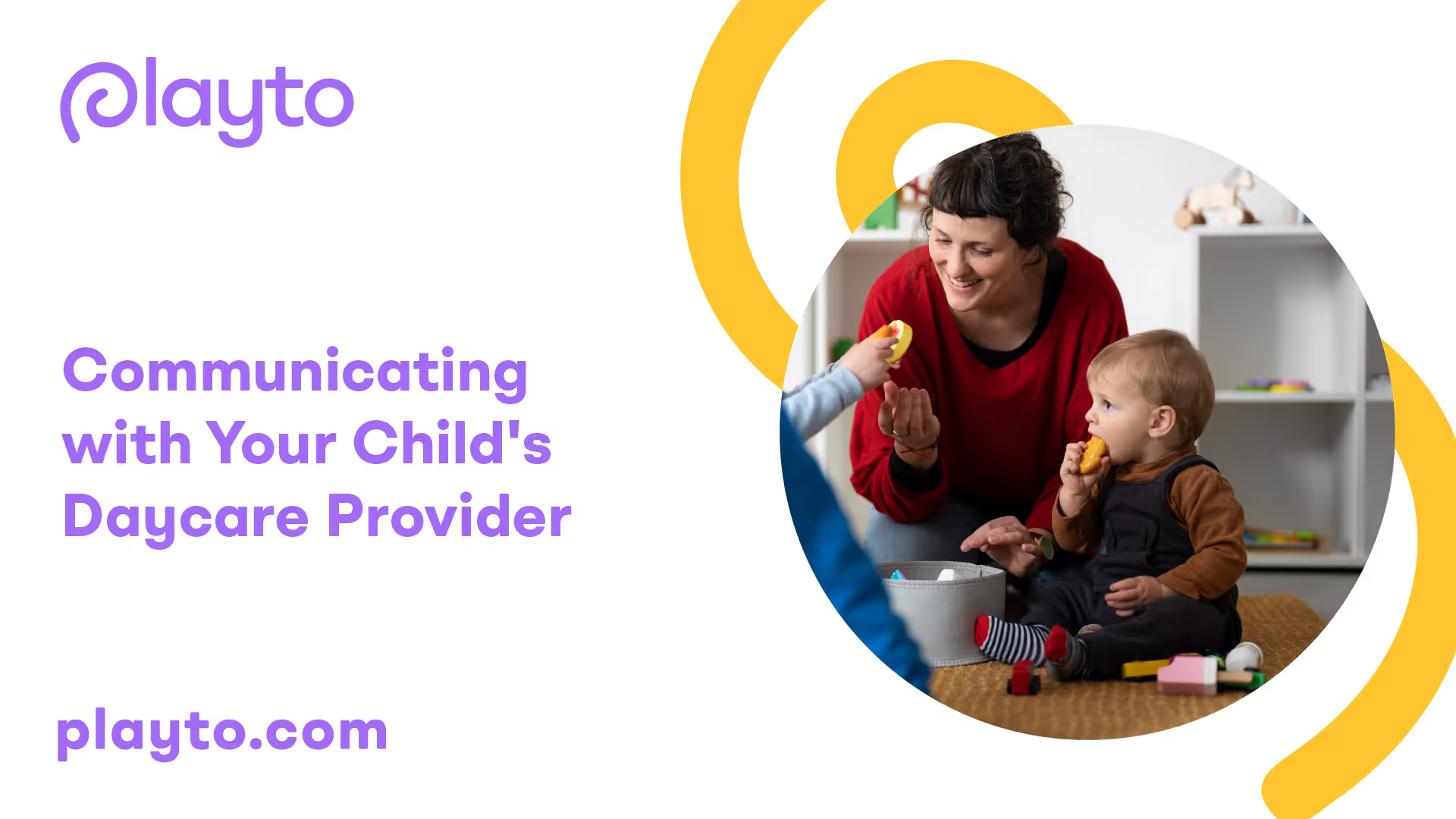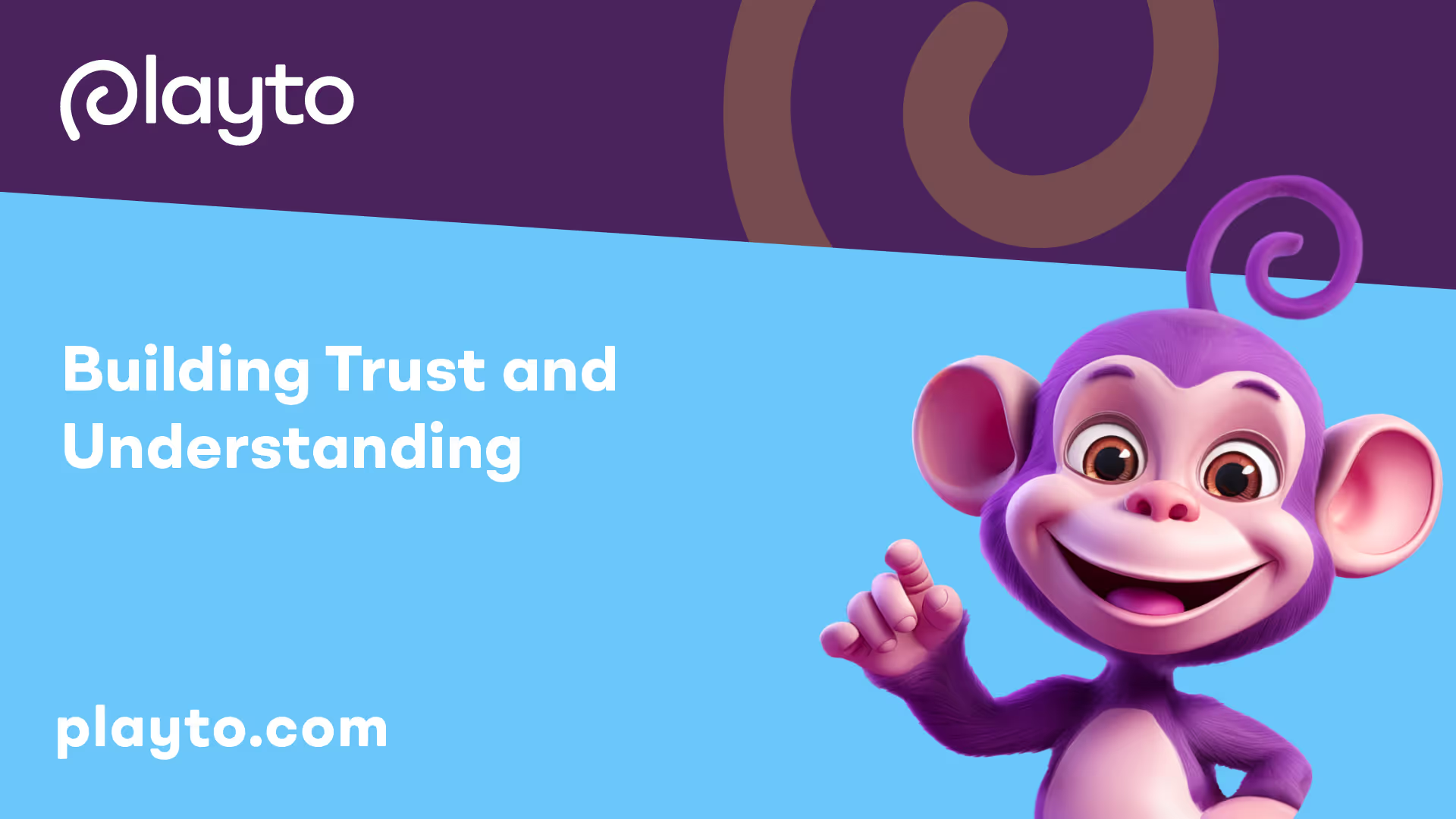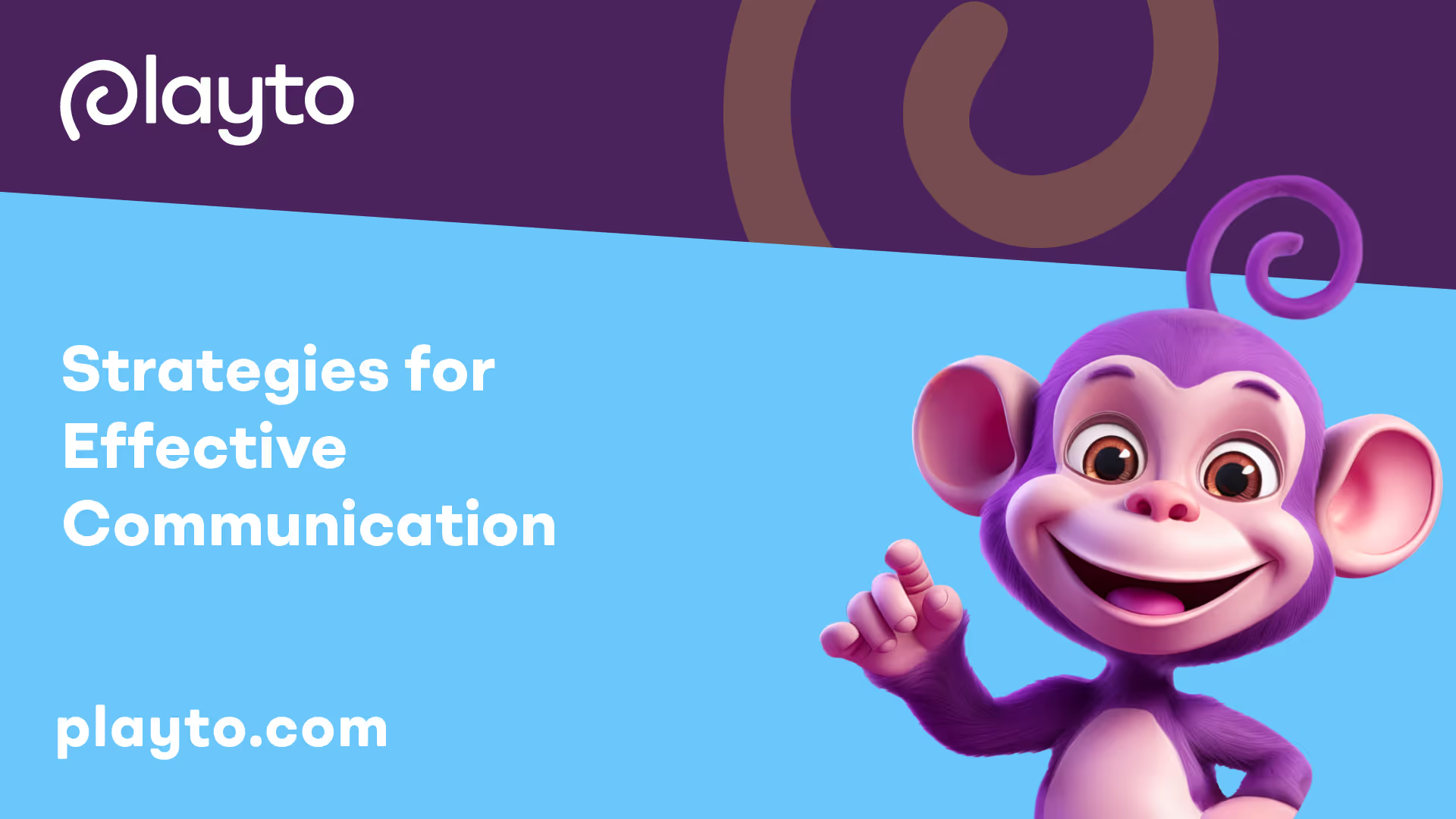Effective Communication with Daycare Providers
When it comes to communicating with your child's daycare provider, effective communication plays a vital role in building a strong partnership between parents and providers. This section explores two key aspects of effective communication: understanding parent interviews and tailoring care to each child.

Understanding Parent Interviews
Parent interviews are an essential part of the communication process between parents and daycare providers. During these interviews, child care providers should ask the right questions to gather important information about the child's needs and preferences. It's crucial to include open-ended questions to allow parents to share their insights and concerns in their own words.
By actively listening and carefully considering the information shared during the interview, daycare providers can gain a deeper understanding of the child's unique qualities, interests, and any specific needs they may have. This information serves as a foundation for tailoring the care and activities provided to each child.
Tailoring Care to Each Child
Every child is unique, and it's essential for daycare providers to recognize and respect these individual differences. Tailoring care to each child involves considering their preferences, schedule, learning progress, immunizations, and family contacts. By keeping track of these details, providers can ensure that each child receives an individualized experience that meets their specific needs.
Effective communication between parents and daycare providers is key to understanding and addressing the unique requirements of each child. Providers should actively listen to parents' insights, ideas, and opinions, showing that their input is valued. This encourages open communication and collaboration, leading to a stronger partnership in caring for the child.
Respecting and understanding each family's background is also crucial in tailoring care to each child. This includes considerations for language barriers, cultural backgrounds, gender identities, and family structures. By treating each family with respect and understanding, daycare providers can establish effective communication channels and create a welcoming and inclusive environment for all children [2].
By understanding parent interviews and tailoring care to each child, daycare providers can create a nurturing and supportive environment that meets the unique needs of every child. Effective communication sets the foundation for a strong partnership between parents and providers, ensuring the best possible care and development opportunities for children in daycare.
Building Trust and Understanding
Establishing trust and understanding is paramount when it comes to effective communication with your child's daycare provider. By employing respectful communication practices and recognizing the importance of trust in communication, parents can forge strong partnerships with daycare staff for the benefit of their child.

Respectful Communication Practices
Treating each family with respect and understanding is essential in childcare settings. This includes considerations for language barriers, cultural backgrounds, gender identities, and family structures [2]. By acknowledging and embracing diversity, daycare providers can create an inclusive environment where all families feel valued and heard.
Positive communication plays a crucial role in establishing and maintaining effective relationships with parents. Staff members should actively listen to parents' concerns, questions, and feedback, responding in a professional and empathetic manner. Open and honest communication helps build trust and fosters a sense of partnership between parents and daycare providers.
Importance of Trust in Communication
Trust is the foundation of effective communication in childcare. When parents trust their daycare provider, they feel confident that their child's well-being is a top priority. Trust is built through consistent and transparent communication, demonstrating a commitment to the child's development and overall happiness.
By establishing trust, parents are more likely to actively engage with the daycare center and collaborate with staff to meet their child's goals. Trust enables a strong partnership between parents and daycare providers, creating an environment where both parties work together for the benefit of the child's growth and development.
To enhance trust and understanding, daycare providers can implement strategies such as:
- Regularly sharing updates and progress reports about the child's activities and development.
- Seeking input from parents regarding their child's preferences, routines, and needs.
- Consistently addressing any concerns or issues raised by parents in a timely and respectful manner.
- Encouraging open lines of communication, providing multiple mediums for parents to reach out and share their thoughts.
By fostering trust and practicing respectful communication, daycare providers can create a positive and collaborative relationship with parents. This partnership ensures that parents feel confident and comfortable entrusting their child's care to the daycare center, resulting in a nurturing and supportive environment for the child's growth and development.
Strategies for Effective Communication
When it comes to communicating with your child's daycare provider, employing effective communication strategies is vital for maintaining a strong partnership. Here are two key strategies that can enhance communication between parents and daycare providers.

Providing Various Communication Mediums
To promote effective communication in childcare, it's important for daycare providers to offer parents various communication mediums that cater to their preferences. This allows parents to stay informed and engaged in their child's daily activities and well-being. Options such as live chat updates, face-to-face dialogue, or written updates can be utilized to accommodate different communication styles. By providing flexibility in communication mediums, daycare providers can ensure that parents feel comfortable and connected.
Communication MediumDescriptionLive Chat UpdatesReal-time updates through a dedicated chat platform or appFace-to-Face DialogueIn-person conversations during drop-off or pick-upWritten UpdatesDaily or weekly reports detailing a child's activities, meals, and milestones
Adopting a multi-channel approach ensures that parents have access to the information they need and can choose the communication method that best suits their preferences. This flexibility fosters open lines of communication and strengthens the partnership between parents and daycare providers.
Proactive Communication with Parents
Proactive communication plays a crucial role in building trust and transparency between parents and daycare providers. Childcare centers should strive to connect with parents on their preferred platforms, such as email, SMS text messaging, or social media. By utilizing these channels, daycare providers can stay connected with families, especially in situations where face-to-face interactions are limited.
Regular updates regarding a child's activities, development, and any important center announcements can be shared through these channels. This proactive approach ensures that parents feel informed and involved in their child's daycare experience.
In addition, daycare providers should make special arrangements to communicate promptly with linguistically and culturally diverse families. This may involve hiring translators, using translation services, or conducting in-person communication when necessary. It's essential to adopt flexible communication strategies to meet the needs of families with limited access to technology, ensuring they can receive communications in a timely fashion.
By being proactive in communication and adapting to the preferences of parents, daycare providers can establish strong connections and foster a collaborative relationship with families.
Effective communication strategies not only enhance the overall daycare experience but also contribute to the well-being and development of your child. By providing various communication mediums and engaging in proactive communication, parents and daycare providers can work together to ensure the best care and support for children in the daycare setting.
For more information on daycare-related topics, check out our articles on potty training support in daycare centers, nap time policies in daycare: why they matter, signs of a high-quality daycare center, and the cost of daycare: what to expect and how to budget.
Overcoming Communication Barriers
When it comes to communicating with your child's daycare provider, it's essential to overcome any barriers that may hinder effective communication. Two significant barriers to consider are cultural considerations and language accessibility.
Cultural Considerations
Treating each family with respect and understanding, including considerations for language barriers, cultural backgrounds, gender identities, and family structures, is crucial for establishing effective communication with parents in childcare. It's important for daycare providers to be sensitive to the diverse cultural backgrounds of the families they serve. Understanding and respecting communication preferences related to cultural values, priorities, and commitments is essential for effective communication with families.
To overcome cultural barriers, daycare centers should make special arrangements to communicate promptly with linguistically and culturally diverse families. This can include hiring translators, using translation services, or conducting in-person communication when necessary. By ensuring that families are comfortable and understood, daycare providers can foster a positive and inclusive environment where effective communication can thrive.
Language and Accessibility
Language barriers can significantly impact communication between daycare providers and parents. It is essential for daycare centers to be equipped to communicate effectively with families who may have limited English proficiency. Special arrangements should be made to provide translation services, whether through hiring translators or using translation tools, to ensure that information is accurately conveyed to parents.
In addition to language barriers, other accessibility considerations should be taken into account. For example, parents with hearing impairments may require written communication or sign language interpretation. It's crucial for daycare providers to identify and address these accessibility needs to ensure that all families can effectively participate in communication.
By actively addressing cultural considerations and language accessibility, daycare providers can break down barriers to communication and create an inclusive environment for all families. Open and respectful communication practices that take into account diverse backgrounds and accessibility needs contribute to building strong partnerships between parents and daycare providers. This enables collaborative efforts in supporting the development and well-being of the children under their care.
To learn more about effective communication strategies and other relevant topics related to daycare, check out our articles on potty training support in daycare centers, nap time policies in daycare: why they matter, signs of a high-quality daycare center, and the cost of daycare: what to expect and how to budget.
Addressing Concerns with Daycare Staff
When concerns arise regarding your child's daycare experience, it's important to address them promptly and effectively. Constructive communication strategies can help facilitate productive conversations with daycare staff, leading to the resolution of issues and the improvement of your child's care. Here are some strategies to consider:
Constructive Communication Strategies
When approaching daycare staff with concerns, it's crucial to maintain a respectful and constructive approach. Starting the conversation with a positive tone can help set the right atmosphere for open dialogue. Instead of immediately accusing or blaming, focus on expressing your concerns and desired outcomes. Be clear and concise in your communication, stating the issue succinctly without getting drawn into prolonged discussions [5].
It's important to remember that effective communication involves active listening. Give the daycare staff an opportunity to share their perspective and engage in a dialogue. This approach can help foster understanding and collaboration to find a resolution that meets both your needs and the daycare's policies.
Resolving Issues Respectfully
When discussing concerns with daycare staff, it is essential to maintain a respectful and solution-oriented mindset. Focus on the future rather than dwelling on the past. Clearly state your expectations for the desired change or resolution. By expressing your concerns with a positive and forward-thinking approach, you can encourage the daycare staff to address the issue and work towards a resolution.
If the response from daycare staff is dismissive or disrespectful, it may be an indication that finding a new daycare provider is necessary. In such cases, the well-being and happiness of your child should always take precedence. Remember that effective communication involves mutual respect and a willingness to work together towards a resolution [5].
It's important to consider the personalities of the individuals involved, as well as the local culture and their receptiveness to constructive criticism. Effective communication strategies aim to address concerns without damaging the self-confidence and dignity of the staff. By approaching conversations with empathy and understanding, you can create an environment conducive to open communication and problem-solving.
Remember, unresolved concerns can cause ongoing tension and discomfort. If issues persist and communication with daycare staff becomes challenging, it may be necessary to involve the daycare director or consider alternative childcare options. Prioritizing the well-being and happiness of your child is paramount.
By employing constructive communication strategies and maintaining a respectful approach, you can address concerns with daycare staff in a manner that promotes understanding, collaboration, and the best interests of your child.
Enhancing Communication in Daycare Centers
In today's digital age, daycare centers are leveraging various communication tools and strategies to enhance the flow of information between parents and staff. This section explores two key aspects of communication enhancement in daycare centers: leveraging digital communication and establishing strong parent-staff connections.
Leveraging Digital Communication
Child care centers have adapted their communication strategies to utilize digital media, especially in light of the challenges posed by the coronavirus pandemic. With fewer opportunities for face-to-face communication, it has become essential to find alternative ways to stay connected with families. According to Procare Software, child care providers can engage and communicate with parents through various digital channels, such as:
- Email: Sending regular updates, newsletters, and important announcements via email allows for efficient and timely communication.
- SMS Text Messaging: Utilizing text messages enables quick communication, reminders, and notifications that can be easily accessed by parents on their mobile devices.
- Social Media Platforms: Establishing a presence on social media platforms, based on parents' preferences, can help share important information, photos, and updates in a familiar and accessible format.
By leveraging digital communication tools, daycare centers can maintain regular contact with parents, provide updates on their child's progress, and address any concerns or questions that may arise. This enhances transparency and keeps parents informed and engaged in their child's daycare experience.
Establishing Parent-Staff Connections
In addition to digital communication, establishing strong connections between parents and staff is crucial for effective communication in daycare centers. This involves creating an environment of trust, openness, and collaboration. When parents and staff work together as partners, it benefits the child's overall development and well-being.
To foster strong parent-staff connections, daycare centers should:
- Encourage Open Communication: Create opportunities for parents and staff to communicate openly and share information about the child's needs, preferences, and milestones. This can be done through regular check-ins, parent-teacher conferences, and informal conversations.
- Share Goals and Priorities: Establishing shared goals and priorities helps child care providers understand each child's individual history, strengths, and areas for improvement. This understanding enables them to design activities or connect families with additional resources to support the child's development.
- Actively Listen: Listening attentively to parents' concerns, feedback, and suggestions demonstrates respect and validates their role as active participants in their child's care. This allows for effective problem-solving and collaboration between parents and staff.
- Foster a Welcoming Environment: Creating a warm and inclusive environment where parents feel welcome and valued contributes to building strong connections. Encouraging parental involvement in daycare activities and events can further strengthen these connections.
By establishing parent-staff connections, daycare centers can ensure that communication flows smoothly, allowing for better understanding, trust, and collaboration between all parties involved.
Enhancing communication in daycare centers through digital tools and strong parent-staff connections creates a supportive and collaborative environment. This fosters effective communication, enabling parents and staff to work together to provide the best possible care and support for each child.
